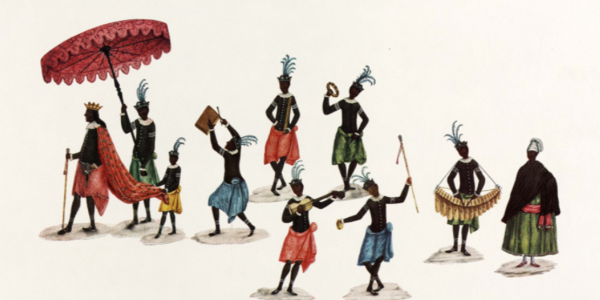Intersections: Black and Indigenous Sound in the Early Atlantic World
Join us in exploring the intersections of Black and Indigenous sounds and music in the early Atlantic world. The event will feature short presentations from leading scholars, Q&A sessions, music, and a performance by the Charlottesville-based band Lua, known for their innovative blend of Latin-American and Appalachian tradition. The event is free and open to all.
This public event is part of a two-day symposium that focuses on sound in the early Atlantic world. In recent decades, thinkers in Black Studies and Indigenous Studies have transformed our understanding of this region's deeply multicultural past. But disciplinary, geographic, and linguistic divides can make it difficult for those working in diverse fields to bring research in these areas into dialogue. This symposium gathers scholars of music, history, literature and languages to converse about early Indigenous and Black performances in Latin America, the colonial United States, Atlantic Africa, Europe, and throughout the Atlantic basin.
This event is timed to coincide with Hispanic heritage month and Indigenous People’s Day in order, to highlight intersections among Indigenous and Black performances in Latin-American and Anglo American colonial histories. In the spirit of collaboration, participants converse across disciplines in pursuit of a more inclusive understanding of the colonial past.
Collective, interdisciplinary thinking is an important “next step” in the burgeoning field of early Atlantic sound. By moving beyond traditional subjects, geographies, and disciplinary divides, scholars can work together to tackle common challenges and better attune our ears to harmonies and resonances throughout the vast region.
Humanities Research Center, College of Humanities and Sciences, Virginia Commonwealth University

